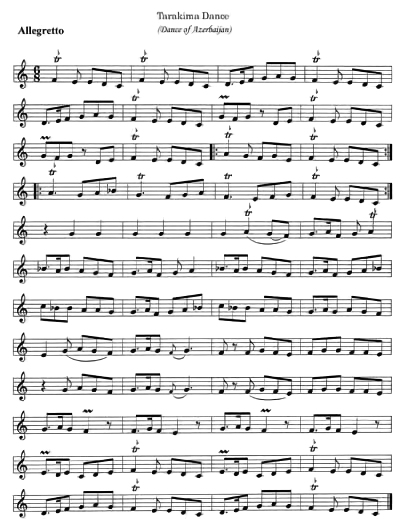|
Tərəkəmə
Tarakama or Terekeme ( az, Tərəkəmə) is an Azerbaijani rhythmic folk dance. Etymology Terekeme is the name of a tribe settled in Azerbaijan in the ancient times. The dance was originated by the Terekeme people. It is one of the most ancient dances of Azerbaijan. There are two types of Terekeme dance with the same melody. It is mainly performed on weddings and holidays, and with the zurna The zurna ( Armenian: զուռնա zuṙna; Old Armenian: սուռնայ suṙnay; Albanian: surle/surla; Persian: karna/Kornay/surnay; Macedonian: зурла/сурла zurla/surla; Bulgarian: ''зурна/зурла''; Serbian: зурла/zu ... instrument. Stamps File:Stamps of Azerbaijan, 2013-1089.jpg, Stamp of Azerbaijan, 2013 File:15-2013-04-18-Марка Беларусі - Тэрэкемэ.jpg, Stamp of Belarus, 2013 External links Gövhər Rzayeva - Tərəkəmə Azerbaijani dances ... [...More Info...] [...Related Items...] OR: [Wikipedia] [Google] [Baidu] |
Karapapak
The Karapapakhs or Tarakama ( az, Qarapapaqlar, Tərəkəmələr; tr, Karapapaklar, Terekemeler) are a Turkic people, who originally spoke the Karapapakh language, a western Oghuz language closely related to Azerbaijani and Turkish. Nowadays, the Karapapakh language has been largely supplanted by Azerbaijani and Turkish. After moving into Western Asia in the Middle Ages together with other Turkic-speakers and Mongol nomads, the Karapapakhs settled along the Debed river in eastern Georgia (along the present-day Georgian-Armenian border). They moved to Qajar Iran and the Ottoman Empire after the Treaty of Turkmenchay was concluded between Iran and Russia in 1828. The Karapapakhs who remained within the Russian Empire were counted as a separate group in Tsarist population figures. During the Soviet Union's existence the Karapapakhs were culturally and linguistically assimilated by the Azerbaijanis, and they were counted as "Azerbaijanis" in the 1959 and 1970 Soviet censuses ... [...More Info...] [...Related Items...] OR: [Wikipedia] [Google] [Baidu] |
Terekeme People
The Terekeme people ( az, Tərəkəmə) are an ethnic group of Azerbaijanis who live in Dagestan and in some southern regions of Azerbaijan as well as Turkey. The population is mainly engaged in cattle breeding and is most often seen as nomads. The Terekemes are Shia Muslims of the Jafari (Caferi) strand and speak the Terekeme dialect of Azerbaijani language. See also *Tarakama (dance), dance originated by the Terekeme *Peoples of the Caucasus in Turkey *Karapapak The Karapapakhs or Tarakama ( az, Qarapapaqlar, Tərəkəmələr; tr, Karapapaklar, Terekemeler) are a Turkic people, who originally spoke the Karapapakh language, a western Oghuz language closely related to Azerbaijani and Turkish. Nowada ... * Azerbaijani people References Azerbaijani tribes Ethnic groups in Russia Ethnic groups in Turkey {{Caucasus-ethno-group-stub ... [...More Info...] [...Related Items...] OR: [Wikipedia] [Google] [Baidu] |
Azerbaijan Netional Dances - Tarakama
Azerbaijan (, ; az, Azərbaycan ), officially the Republic of Azerbaijan, , also sometimes officially called the Azerbaijan Republic is a transcontinental country located at the boundary of Eastern Europe and Western Asia. It is a part of the South Caucasus region and is bounded by the Caspian Sea to the east, Russia (Republic of Dagestan) to the north, Georgia to the northwest, Armenia and Turkey to the west, and Iran to the south. Baku is the capital and largest city. The Azerbaijan Democratic Republic proclaimed its independence from the Transcaucasian Democratic Federative Republic in 1918 and became the first secular democratic Muslim-majority state. In 1920, the country was incorporated into the Soviet Union as the Azerbaijan SSR. The modern Republic of Azerbaijan proclaimed its independence on 30 August 1991, shortly before the dissolution of the Soviet Union in the same year. In September 1991, the ethnic Armenian majority of the Nagorno-Karabakh region formed th ... [...More Info...] [...Related Items...] OR: [Wikipedia] [Google] [Baidu] |
Azerbaijan
Azerbaijan (, ; az, Azərbaycan ), officially the Republic of Azerbaijan, , also sometimes officially called the Azerbaijan Republic is a transcontinental country located at the boundary of Eastern Europe and Western Asia. It is a part of the South Caucasus region and is bounded by the Caspian Sea to the east, Russia (Republic of Dagestan) to the north, Georgia to the northwest, Armenia and Turkey to the west, and Iran to the south. Baku is the capital and largest city. The Azerbaijan Democratic Republic proclaimed its independence from the Transcaucasian Democratic Federative Republic in 1918 and became the first secular democratic Muslim-majority state. In 1920, the country was incorporated into the Soviet Union as the Azerbaijan SSR. The modern Republic of Azerbaijan proclaimed its independence on 30 August 1991, shortly before the dissolution of the Soviet Union in the same year. In September 1991, the ethnic Armenian majority of the Nagorno-Karabakh region form ... [...More Info...] [...Related Items...] OR: [Wikipedia] [Google] [Baidu] |
Zurna
The zurna ( Armenian: զուռնա zuṙna; Old Armenian: սուռնայ suṙnay; Albanian: surle/surla; Persian: karna/Kornay/surnay; Macedonian: зурла/сурла zurla/surla; Bulgarian: ''зурна/зурла''; Serbian: зурла/zurla; Syriac Aramaic: ܙܘܪܢܐ/zurna; Tat: zurna; Turkish: zurna; Kurdish: zirne; Greek : ζουρνας; Azeri: zurna) is a double reed wind instrument played in central Eurasia, Western Asia and parts of North Africa. It is usually accompanied by a davul (bass drum) in Armenian, Anatolian and Assyrian folk music. Characteristics and history The zurna, like the duduk and kaval, is a woodwind instrument used to play folk music. The zurna is made from the slow-growing and hardwood of fruit trees such as plum or apricot (''Prunus armeniaca''). There are several different types of zurnas. The longest (and lowest-pitched) is the kaba zurna, used in western Turkey and Bulgaria, the shortest (and highest-pitched), which can be made of b ... [...More Info...] [...Related Items...] OR: [Wikipedia] [Google] [Baidu] |



